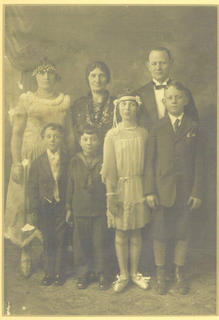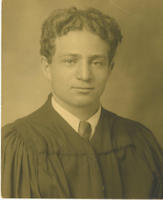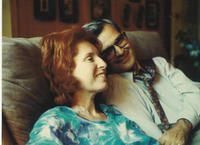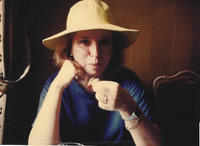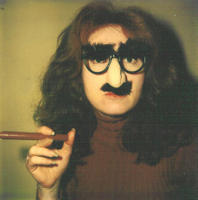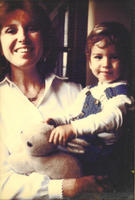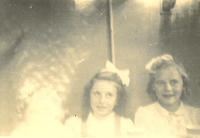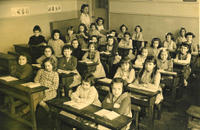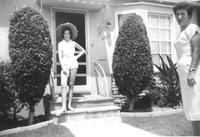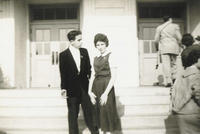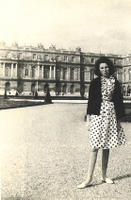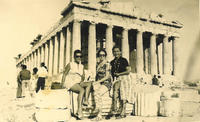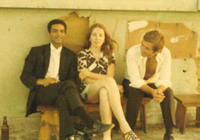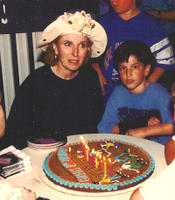It’s around 1983 and we’re ready to sign the escrow papers to the new house, our 3rd in around 10 years after we “settled down.” We’re living in Stu City, a rare LA / Valley walking ‘hood - S. of the B’vard, almost not even TheValley. Then the baby comes and so do cars, screeching ‘round the corner and, like comets once a year or so end up in our front yard. Two fences later, we look to move. It’s okay, Bijou’s done what she can with the place: she’s like a mad nomad decorator - takes about 4 years to finish. Then its time for the next move, next project.
So we look-y-loo with brokers, and after seeing every house listed on the west coast, find a kid friendly place: pool, bigger back yard, most of all quiet, no traffic. Bijou’s excited, sees “possibilities” despite the painted peacock, stone planter with plastic flowers, red carpets. Mostly, I see no cars careening onto the lawn, imagine my kid on a bike, and playing catch in the road.
So here we are. Inspections done, loans approved. Ready to sign and move in asap. “Uh, there is one little item,” the broker mumbles. “A small disclosure.” “Oh? What, like earthquake damage?” “Not exactly. See, there was a murder in the house.” Silence.
Okay, I’m a public defender at the time - always taking my work home with me, but this is ridiculous. I pack up. Bijou huddles, "at least check it out. It might not be so bad." Okay, I “investigate,” make calls. Here’s what I find.
The lady’s bloody body is found near the planter by her adopted son, who’s arrested for it. Police don’t believe he found her that way - he’s 17, druggie, needs cash. I talk to the I/O, the DA, the defense lawyer. He’s going down for at least a 2nd, I’m told. Maybe a 1st, there’s money missing.
So I’m thinking, so much for the quiet street theory. Drunk drivers on the lawn beat dope fiends in the bedroom any night. But Bijou really really likes the place. We’re doing everything over anyway. The crime’s solved, right?
Slow fade to about 17 years later and I’m sitting in my office and I get a call from a PI. He’s working on a habeas for the son, who’s been in all this time. He has one question: “Did you ever tell the I/O that money was found in the attic?”
This is the first time I’ve heard this question, but not the last. A couple of years later I get a call from LAPD, Internal Affairs. A couple more years and the LA Times want to know. Then I get a visit from a different IA guy and a call from the DA who tried the case. They all have a lot of questions about the issue, and they don’t tell me everything they know — see, for once, I’m not the advocate, only a “witness” and they don’t tell witnesses what they know.
I tell them all the same thing. Over the years, we had a lot of work done in the house, including the roof. Bijou died in April, ‘92, after sixteen agonizing and terrifying months of illness. I moved away in ‘95. I don’t remember ever finding any money in the attic, or being told by Bijou that workmen found any, or telling the I/O that any money was found. Considering my experience I think I would remember if any of that happened. So I don’t think it did.
My interrogators don’t tell me all they know, but over time I piece together some details. The motive of the killing was money, and some money was “missing” from the lady’s purse. Around $150. The son denied stealing it, and it wasn’t found on him when the cops came. He was convicted, sentenced to 15 to life and when he came up for parole, the I/O sent letters to the Board. In one letter, he said that he was told by the new owners of the house that workmen had found the money in the attic, which is where he believed the son had hidden it before calling. More evidence, he points out, to counter continuing protestations of innocence.
Now, I begin to wonder. Still don’t remember such a conversation and still can’t imagine I would forget that. Except for one thing. If all this happened while Bijou was going through her hell. There’s lots of things I can’t remember during that nightmare period, whole days went by in a blur, and events are jumbled in my memory. It was a dark time when we were spiraling into an abyss.
And wouldn’t the cop’s memory be better than mine? I can’t call him a liar, just that I don’t remember it. Still ...
So now the LA Times article appears. And there’s plenty of details I didn’t know. The time sequence of the I/O’s letters to the Board suggest that the supposed “conversation” about the money happened between late in ‘91 and April, ‘92. I don’t think Bijou was in any condition at that time to have been casually conversing with neighbors and I don’t remember having any work done at that time.
Then they report a shocker. A notation of an inventory of the contents of the purse found near the body ... it includes around $150 in cash.
And there’s more. There was another suspect, a friend of the son. A phone number was dialed from within the house that might have connected this other guy, and a second person’s shoeprint was found, now connected by DNA to a second person. And an I/A investigator apparently had his own doubts. So does the DA who got the conviction. The I/O has now “retired,” if not under fire, at least amid mounting doubts by many concerned with the case that the right person was convicted.
And now, apparently, the judge hearing the habeas petition has questions. So do I. Two women died tragically in that house, and the mysteries continue.
